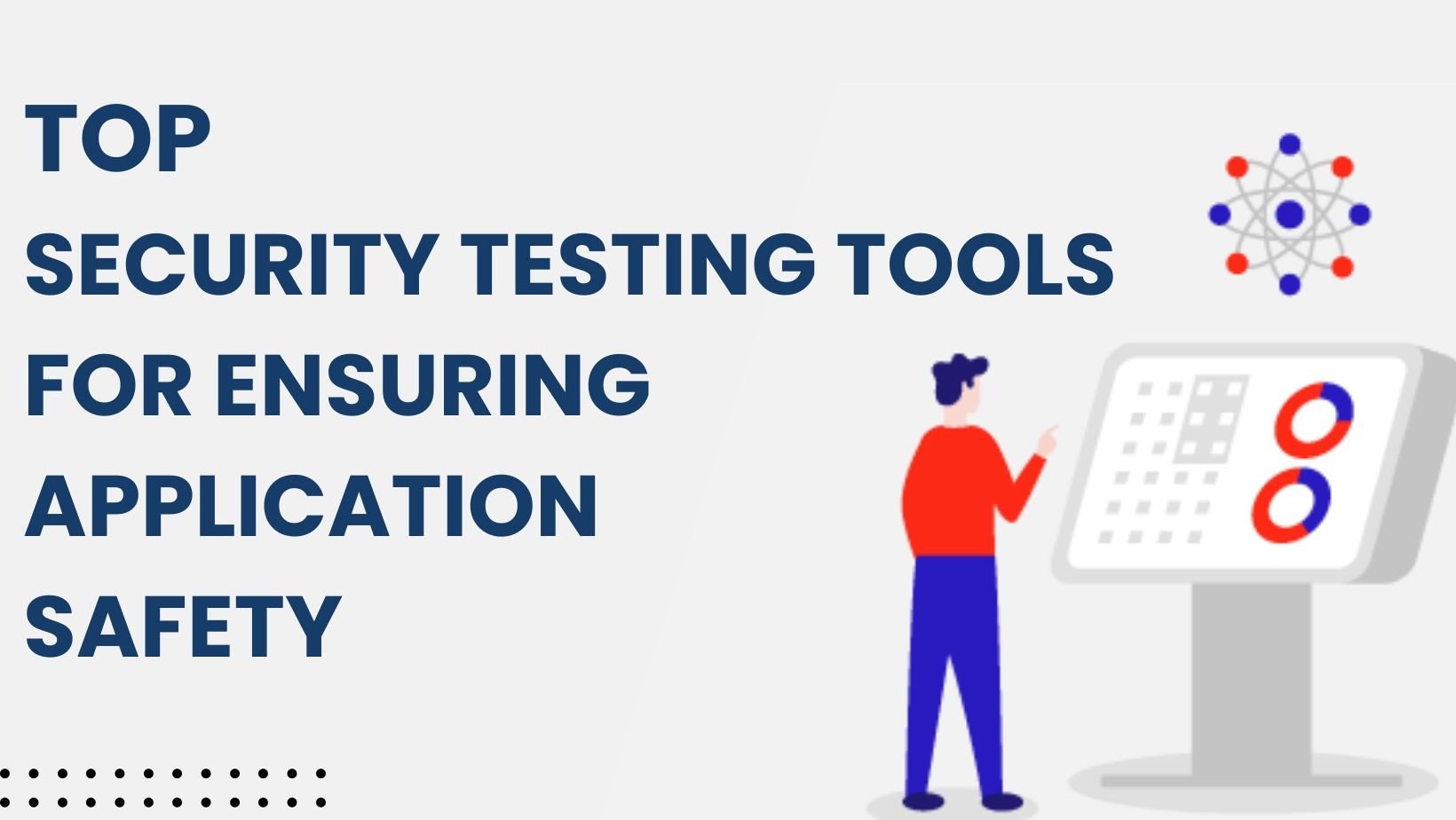Top Security Testing Tools for Ensuring Application Safety
 Shivanshi Singh
Shivanshi Singh
In today's digital age, ensuring application security is more crucial than ever. As cyber threats continue to evolve, businesses must be proactive in safeguarding their applications. Security testing tools play a vital role in identifying vulnerabilities and ensuring application safety. Below, you will explore some of the top security testing tools that can help developers and security teams protect their applications from potential threats.
1. Introduction to Security Testing
Security testing is a process used to ensure that an application is free from any vulnerabilities that could be exploited by attackers. It involves testing the application’s architecture, design, and implementation to identify and fix potential weaknesses. Effective security testing helps prevent data breaches, financial losses, and reputational damage to businesses.
Types of Security Testing Tools
Security testing tools can be broadly categorized into the following types:
a. Static Application Security Testing (SAST)
SAST tools analyze an application’s source code to detect vulnerabilities. These tools are designed to catch issues early in the development process, before the code is deployed.
b. Dynamic Application Security Testing (DAST)
DAST tools perform security testing on a running application. Unlike SAST, DAST tools don’t require access to the source code. They simulate external attacks to identify security vulnerabilities in real-time.
c. Interactive Application Security Testing (IAST)
IAST tools combine both static and dynamic analysis to provide more comprehensive security testing. They monitor the application in real-time and identify vulnerabilities as they appear.
Top Security Testing Tools
There are several security testing tools available in the market, each offering unique features and capabilities. Here are some of the best tools for ensuring application security:
a. OWASP ZAP (Zed Attack Proxy)
OWASP ZAP is an open-source DAST tool that helps find vulnerabilities in web applications. It is highly popular among security professionals due to its ease of use and extensive plugin support.
Features:
Automatic vulnerability scanning
Passive scanning
Man-in-the-middle proxy support
Best For: Developers and security teams looking for an easy-to-use, free security testing tool.
b. Burp Suite
Burp Suite is another powerful DAST tool that offers a wide range of features for performing security testing on web applications. It comes in two versions: a free community edition and a premium professional edition.
Features:
Web vulnerability scanner
Manual testing support
Extensibility with plugins
Best For: Security professionals looking for an all-in-one tool for manual and automated testing.
c. Nessus
Nessus is a vulnerability scanning tool used to identify security issues like misconfigurations, outdated software, and insecure protocols. It’s widely used for both network and web application security testing.
Features:
Compliance checks
Malware detection
Comprehensive vulnerability scanning
Best For: Enterprises needing extensive network and application security testing capabilities.
d. Veracode
Veracode is a cloud-based SAST tool that offers a wide array of security testing solutions, including static and dynamic analysis. It is known for its speed and accuracy in identifying vulnerabilities in an application’s codebase.
Features:
SAST and DAST integration
Real-time vulnerability scanning
Detailed reporting
Best For: Development teams that require automated, scalable security testing solutions.
e. Acunetix
Acunetix is a web vulnerability scanner designed to identify a wide range of security issues, including SQL injection, XSS, and weak passwords. It’s available as an on-premises and cloud-based solution.
Features:
Comprehensive vulnerability detection
Automated scanning
Vulnerability management features
Best For: Organizations looking for a dedicated web application security scanner with automation features.
Key Factors to Consider When Choosing a Security Testing Tool
Choosing the right security testing tool for your organization is critical for ensuring application safety. Here are some factors to consider:
a. Ease of Use
The tool should be user-friendly and easy to integrate into your existing workflows.
b. Scalability
The tool must be able to scale with your application as it grows.
c. Comprehensive Coverage
Ensure the tool covers a wide range of security threats, including both known and unknown vulnerabilities.
d. Cost
Consider whether the tool fits within your budget, particularly if you're selecting between free and paid solutions.
e. Support and Community
A strong support system and an active user community are essential for troubleshooting and getting the most out of your security testing tool. Additionally, many individuals enhance their knowledge in this area through software testing training in Noida, Delhi, Meerut, Chandigarh, Pune, and other cities located in India, which can provide valuable insights into best practices and tool usage.
Conclusion
Ensuring the security of your application should be a top priority in today’s threat landscape. Using the right security testing tools can help identify and fix vulnerabilities early, preventing costly breaches and maintaining user trust. Whether you’re looking for open-source options like OWASP ZAP or enterprise-grade solutions like Veracode, it’s important to choose a tool that fits your organization’s specific security needs. By incorporating security testing into your development process, you can build robust, secure applications that withstand modern cyber threats.
Subscribe to my newsletter
Read articles from Shivanshi Singh directly inside your inbox. Subscribe to the newsletter, and don't miss out.
Written by

Shivanshi Singh
Shivanshi Singh
I am a Digital Marketer and Content Marketing Specialist, I enjoy technical and non-technical writing. I enjoy learning something new. My passion and urge is to gain new insights into lifestyle, Education, and technology.